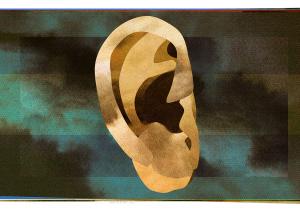“Have patience with everything that remains unsolved in your heart. Try to love the questions themselves, like locked rooms and like books written in a foreign language. Do not now look for the answers. They cannot now be given to you because you could not live them. It is a question of experiencing everything. At present you need to live the question. Perhaps you will gradually, without even noticing it, find yourself experiencing the answer, some distant day.” ~Rainier Maria Rilke
The Rilke quote popped up on my “Facebook memories” feed. I remember posting it three years ago, soon after my son’s birth, when life frequently overwhelmed me and I couldn’t quite understand what the universe was asking. It was the year of realizing that I could not lift my friend out of her alcoholism, no matter how much I prayed or how safe a space I tried to be. The year I realized that no matter how much I tried to reframe our life situation as one of “voluntary simplicity,” sharing a small apartment with two babies and a husband may not actually serve anyone’s real needs. The year of realizing that God may have given me certain gifts and strengths, but whether or not those gifts and strengths can support a family is an open (and painful) question. The Rilke quote had come at a good time. It had felt as though the universe (God?) had heard my cries and was sending a lifeboat—not a permanent solution, not even an answer to a question, but something that could keep me afloat awhile longer in hope and purpose.
But reading the quote again, three years later, I think, What the hell, Rilke? “Try to love the questions themselves, like locked rooms and like books written in a foreign language”?! Who loves locked doors and books written in foreign languages? What an unequivocal pain in the ass!
Unless I have a key to that locked door or am fluent in the foreign language, both the door and the book are going to piss me off! I’m going to wonder what’s behind the door, and agonize over why I’m not allowed through it. My lack of facility at reading the book is going to make me feel feeble and parochial. These unsolved situations are not awesome, Rilke.
Martha doesn’t seem to like them either.
In the Gospel for the Cycle A readings this weekend, we have the story of Jesus raising Lazarus from the dead. John begins by telling us, “Jesus loved Martha and her sister and Lazarus.” Yet when Martha and Mary send word that their brother Lazarus is dying, the Gospel says Jesus “remained for two days in the place where he was.” And sure enough, Lazarus dies, Jesus is not there, and the two sisters go into mourning.
The mourning expresses itself differently in the two sisters. When Martha and Mary hear that Jesus is (finally?) on his way, we read that Mary stays at home, presumably engulfed in grief, too weak to extend herself anymore than necessary.
But Martha goes out to meet him. And she challenges Jesus the second she sees him: “Lord,” she says. “If you had been here, my brother would not have died.” The words seem like an accusation, a rebuke, even.
Jesus remains nonplussed. He knew Lazarus would die, and does not seem worried that it has happened. Jesus says to Martha, “I am the resurrection and the life; whoever believes in me, even if he dies, will live, and everyone who lives and believes in me will never die. Do you believe this?”
Martha says she does believe, and goes to find Mary. And our sweet Mary is devastated. She literally throws herself at Jesus’s feet, weeping.
Mary’s reaction seems to unnerve Jesus, almost as if he hadn’t realized what a big deal this death thing is. We read that when he sees Mary and her friends all weeping, he becomes “perturbed and deeply troubled.” And then he begins to weep too.
This response cuts pretty deeply for me. And in my recent prayer life, I’ve been going back and forth between Martha and Mary.
I minister in a parish of both Deaf and hearing members. Several years ago, Fr. Walt (pastor to the Deaf community in those days) was trying to teach us some basic signs at a staff meeting. He emphasized that we use the response, “Hear us, O Lord” in the intercessions at our parish because that is the simplest response to translate into ASL. He showed us the sign, which is performed by shaking your hands in the sky parallel to one another.
In ASL, “Hear us, O Lord!” basically looks like you’re shaking God by the ears, desperately trying to get him to pay attention.
And I wonder more and more if that’s what’s necessary. Is that what prayer is about? Which sister was “right” in this story? Martha getting all up in Jesus’s face, pissed as shit, basically screaming “Hear us, O Lord!” until he paid attention? Or Mary, weeping in her room with her friends, lost and devastated, throwing herself upon the mercy of God?
I don’t know the answer. But God has called us friends. So we have to be honest with him. That means that while I long to do God’s will, and to know what that will is, I still have to cry out in my own mourning, “Lord! If you had been here, Eric would have gotten that job, and we wouldn’t have to worry anymore about how we’ll support our family!”
I have to tell him, “Lord, this feels cruel and callous. He got so close. We thought this was your gift, some fulfillment of a promise to care for us and guide us. You gave him a key, and he got the door open, but then someone changed the lock, and now the door is closed again. And I’m becoming wasted with grief, Lord, trying to live with all these questions.” (“Can the shades glorify you, O Lord?!”).
All week long, since we found out the tenure-track job slipped through our fingers after all, I have shaken God, and wept with God, and stared at him in confusion, until I started weeping again.
But, I have to remember, this is the God that raised Lazarus. And I too hope in resurrection.
*****
Holly Mohr lives, works, writes and “listens to God with children” in Pittsburgh, PA. She by turns tries to make sense of the universe, and tries to leave it be.













